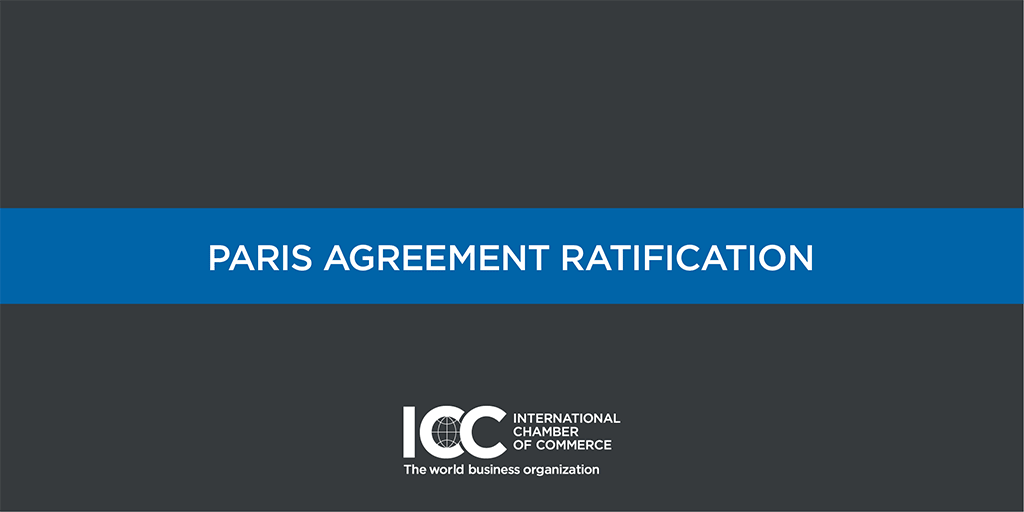Climate change
ICC hails entry into force of Paris Agreement
The International Chamber of Commerce (ICC) has hailed today the entry into force of the Paris Climate Change Agreement - the most comprehensive and complex international climate deal ever negotiated.
The International Chamber of Commerce (ICC) has hailed today the entry into force of the Paris Climate Change Agreement – the most comprehensive and complex international climate deal ever negotiated.
Under the United Nations Framework Convention on Climate Change (UNFCCC), 97 states have now ratified the Agreement representing 69% of global greenhouse gas (GHG) emissions. On 5 October 2016, the threshold for entry into force was achieved, underscoring the continued political momentum for climate action.

Commenting on the entry into force of the agreement, ICC Secretary General John Danilovich said: “This is a defining moment in history which captures the combined global efforts of governments, business and civil society to address the threats of climate change – one of the most pressing challenges of our time.“
ICC is the lead business representative to the United Nations climate talks and has been the business focal point at the landmark UN Climate Conferences, including the Paris Climate Conference (COP21) in December 2015. The world business organization will be hosting a range of briefings and events at next week’s COP22 Conference in Marrakech – including the official COP22 Business Day on 11 November (BINGO Day).
“The future implementation of the Paris agreement must be clarified at COP22 through the establishment of rules that drive business investments in climate solutions,” said Mr Danilovich.
In advance of COP22 ICC has outlined four priority areas for action to help speed implementation of the Paris Agreement:
- Enhancing transparency through the development of common rules of the Paris Agreement to measure, report, and verify commitments.
- Establishing market mechanisms and other GHG price signals in consultation with business to help achieve emissions reductions, preserve a level-playing field and maintain open trade and markets.
- Supporting innovation including by developing new skills and capacity to respond to climate change challenges.
- Enhancing business engagement, ideally through the establishment of a recognised role for business under the UNFCCC process to support policy dialogue, partnership and business action.
“With the right policy and market frameworks in place, business across all sectors will continue to make significant transformational investments towards a low-carbon, resilient, and inclusive economy. It’s essential that COP22 delivers outcomes that support the private sector in meeting the climate challenge,” Mr Danilovich concluded.
